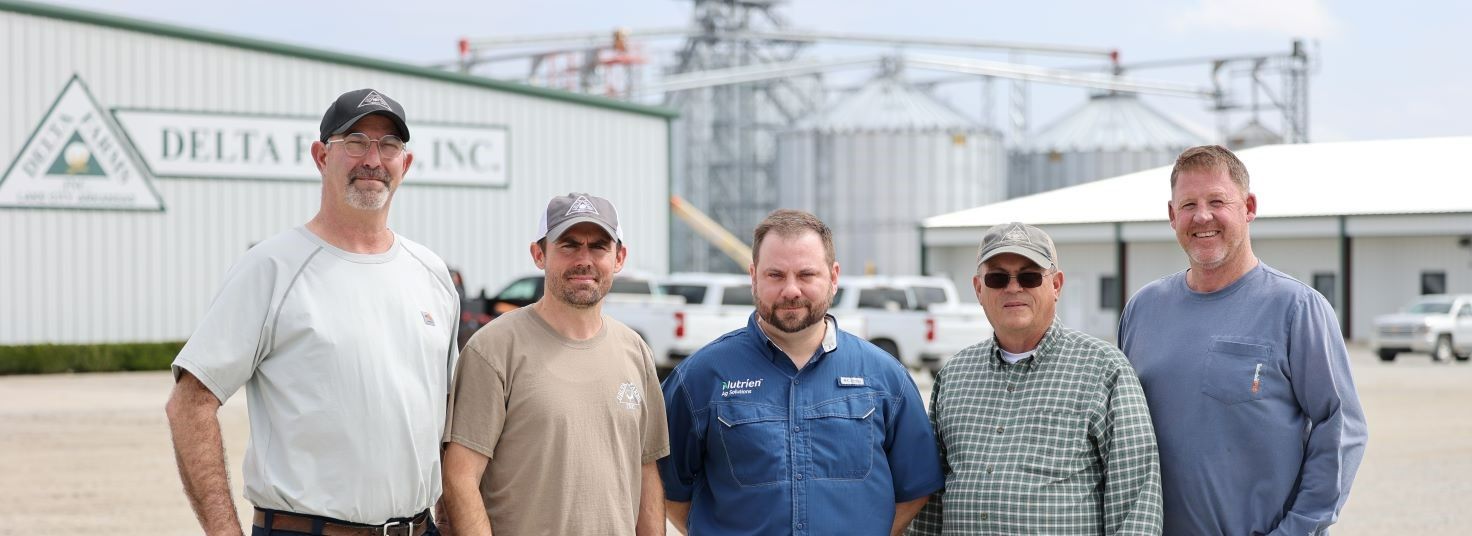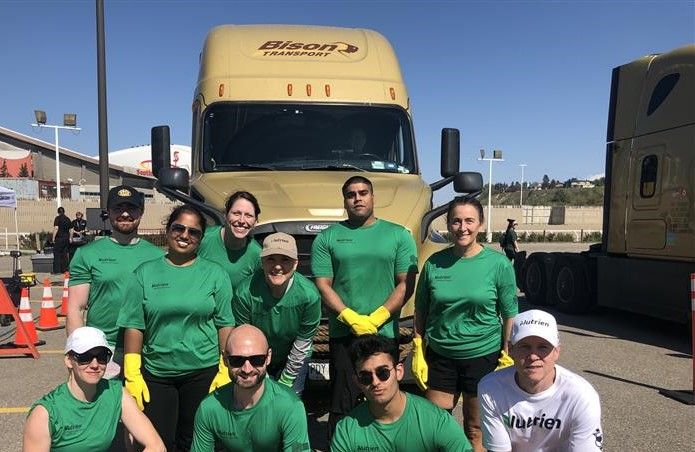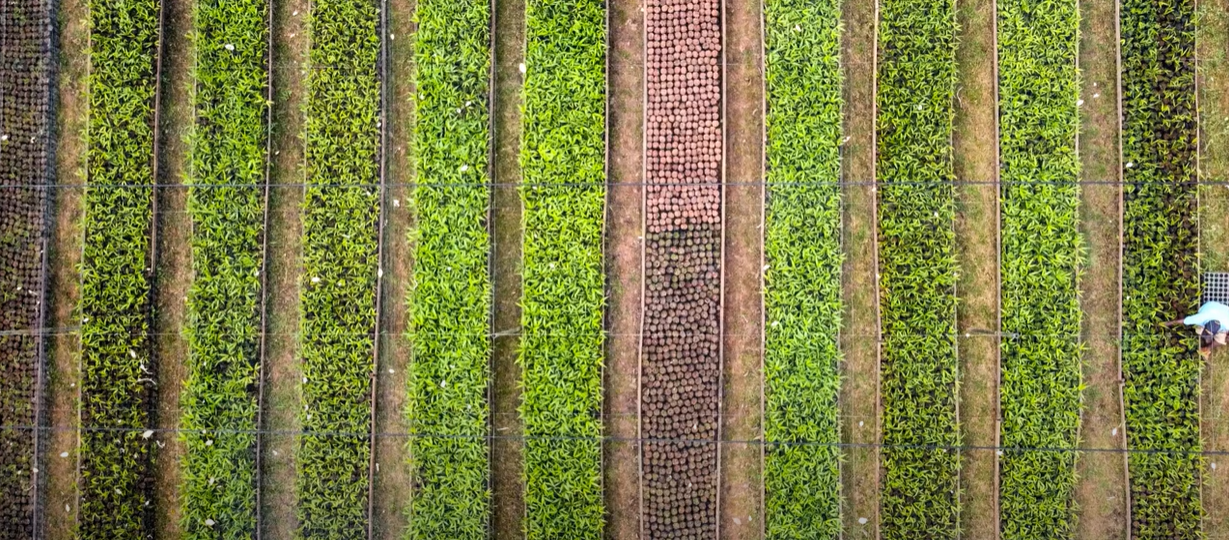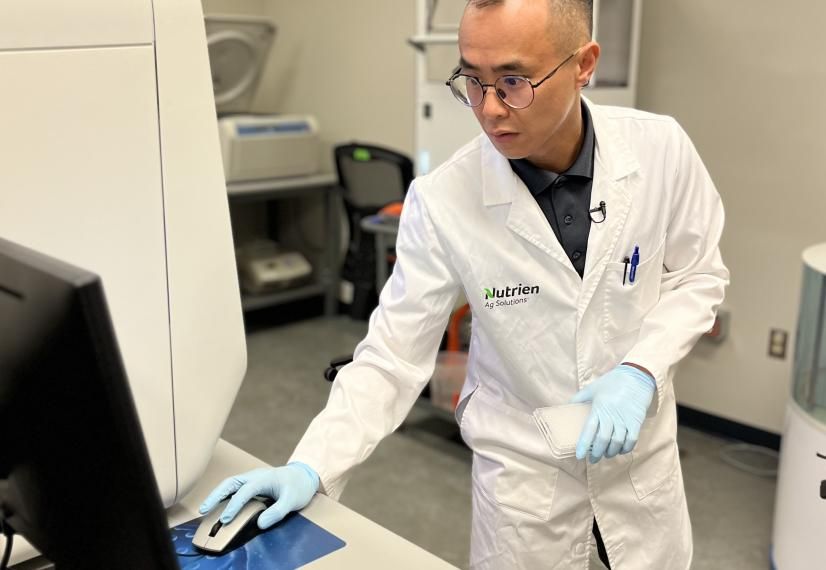
A chosen family rooted in agriculture: Get to know Delta Farms of Lake City
Delta Farms is owned by Gregg Garner, Len Nall, Blake Robertson, and Aaron Garner. The operation has a rich history in Lake City, Arkansas where Gregg and Len’s fathers joined forces to build a partnership that is now known as Delta Farms of Lake City.
“It’s rare to find someone who loves what they do, but I can honestly say that Gregg, Len, Blake, and Aaron truly love farming. Working with family can be difficult at times, but they all bring an important aspect of Delta Farms to the table, it’s like harmony,” says Josh Baker, a Crop Consultant for Nutrien Ag Solutions in Lake City who has been working with Delta Farms for 12 years.
Let’s take a look at the farm now and then travel back in time to understand how these two farming families became one big family.
Being the elephant in the room
With multiple crops, businesses, and ongoing construction to expand their grain elevators, one would think that Delta Farms would be the epicenter of chaos. Instead, farm employees and delivery trucks filled with grain move through their designated sections of the main compound with the purposeful ease of a well-orchestrated symphony.
“It’s important to pre-empt the needs of the community and stay ahead of the curve. If you stop evolving and just stand still, you’re going to get left behind in this business,” says Gregg.
Delta Farms grows cotton, corn, soybeans, peanuts, and rice. The company is a member of a cotton gin, peanut shelling facility, as well as a grain elevator. In 2018 Delta Farms partnered with Southland Gin to build a 2.2-Megawatt Solar Facility continuing their pursuit of being the better stewards of the land.
Every innovation for Delta Farms is rooted in what’s best for the land and the community. For instance, the group realized that there were several steps that could be eliminated to get their peanuts to companies such as M&M – Mars, Inc., the J.M. Smucker Company, and Hershey...to name a few, through Vertical Integration.
This led to partnering with several other growers in the community to build the shelling facility known as Delta Peanut. Now Delta Farms and other peanut farmers in the area can shell their peanuts locally, making it easier for consumers to trace the peanut’s journey from seed to candy bar.
“With Delta Peanut, we knew the next logical step to fill the void in the community was to partner with other farmers to build the shelling plant,” says Blake. “Similarly, we created our grain elevator business because there was a local need to have a place to store grain. Not everyone here has a grain bin, and they need to keep their equipment going in the field. Having a place to store the crop makes all the difference in getting the harvest done on time.”
Delta Farms continues to anticipate the needs of their land and the community around them.
“While we are competitors and do have some rivalry among farms, ultimately, supporting the community and making sure everyone has the tools they need is what farming is all about: providing and helping your neighbors and community,” says Len. “We like to help out our local Future Farmers of America (FFA) chapters, local schools, and if any of our neighbors need assistance with equipment in the field – we're out there with them.”
Accepting their status as being the self-proclaimed “elephant in the room” in their community, the crew remains dedicated to focusing on the purpose that fuels them – being the best caretakers for their land.
“We’re not stripping the soil and taking everything out of it. We’re putting nutrients back into it and making sure our soil is healthy, because the land takes care of us and made us who we are today,” says Blake.
History of the farm
Gregg’s family settled in Arkansas in 1918 and built a home surrounded by cotton fields. To this day, Gregg only plants cotton in the land surrounding his family’s home to keep the legacy going. During this time, the farms in Arkansas were primarily small acreage, family-owned farms and it was well known that “cotton was king.” After World War II, everything changed.
As a result of WWII, technology advanced seemingly overnight. Mechanization was spreading like wildfire and more people were leaving their family farms to work in factories. For the farmers who stayed behind, they began to accumulate more land as their neighbors left to pursue their big city dreams.
Two families who stayed close to their Arkansas roots were the Garner and Nall families. Eventually, the farms were passed to Gregg and Len’s fathers, Bill Garner and Larry Nall. In the late 1970s, the value of cotton decreased and cotton farmers were leaving to make money elsewhere. The departures left a local cotton gin available for purchase, leading Bill and a few other farmers to buy the Dixie Cotton Gin together in 1969. In 1978, Larry bought into the Dixie Gin and then shortly after that Bill and Larry purchased their first piece of ground together as partners. Several years later in the mid-1980s, this partnership was solidified when the two patriarchs purchased a large Cotton Gin Company in Lake City which became the foundation of who they are today.
The rest was history and the families have worked together to use their business savviness to curate Delta Farms into the model of innovation, efficiency, and stewardship that it is today.
“We are very thankful for all the help that we have from our farm help, truck drivers, office help, and suppliers. If it wasn’t for all those people we wouldn’t be as successful as we are,” says Aaron. “I am also very thankful for all our landlords. They put trust in us to produce on their land and take care of it. If it wasn’t for them letting us farm the ground we do, it would be a very different story for Delta Farms.”
Want to keep up with Delta Farms on social media? Follow along with their season on their Facebook page.
Related stories
Explore more about Nutrien

Sudeepta Mohapatra loves the thrill of the chase
In my role I track the global agricultural fundamentals that help in predicting short to long-term trends driving the future direction of the global agriculture industry. I also develop and update various economic models. These models are used to estimate and predict crop input expenditure in our [...]
Read more
Nutrien Releases 2023 Global Community Impact Report
Nutrien’s Community Relations & Investment (CRI) supports our business purpose by nurturing communities through collaborations with community partners who share our values and help us to make a positive and lasting impact in the communities where we operate. “While we share CRI data and stories [...]
Read more
Using DNA analysis to make more resilient crops
Did you know that Nutrien has a Genotyping lab? It’s located in our Canola breeding facility in Saskatoon, Saskatchewan. Employees like Li Tan, Lead, Molecular Biology, work in the lab to analyze DNA for specific genes within plants.
Read more